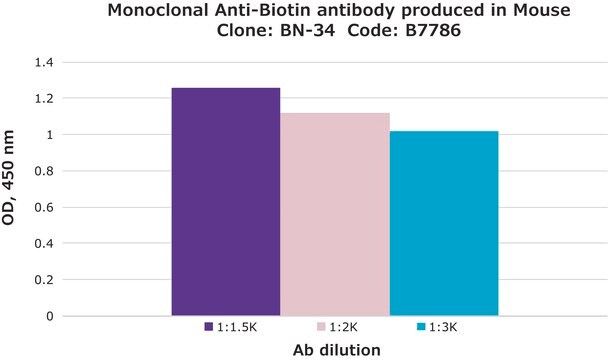P6998
Protein Kinase A Catalytic Subunit β, Active human
recombinant, expressed in baculovirus infected Sf9 cells, ≥80% (SDS-PAGE), buffered aqueous glycerol solution
Synonym(s):
PKA Catalytic Subunit β, Active human, PKA-Cβ), cAMP-dependent protein kinase
About This Item
Recommended Products
recombinant
expressed in baculovirus infected Sf9 cells
Quality Level
Assay
≥80% (SDS-PAGE)
form
buffered aqueous glycerol solution
specific activity
≥10 nmol/min·mg
mol wt
protein apparent mol wt ~65 kDa (including N-terminal GST-tag of ~26kDa)
UniProt accession no.
shipped in
dry ice
storage temp.
−70°C
Gene Information
human ... PRKACB(5567)
General description
The molecular weight of about 65kDa is confirmed by the SDS-PAGE gel. The product was generated by expressing recombinant full-length human PKAcβ2 with an additional N-terminal GST tag by baculovirus in Sf9 insect cells. The gene accession number is NM_002731. The resulting protein is 351aa cAMP-dependent protein kinase catalytic subunit beta isoform 2 (NP_002722), or according to UniProt, Isoform 1 (P22694-1).
Application
Biochem/physiol Actions
Unit Definition
Physical form
Storage Class Code
12 - Non Combustible Liquids
WGK
WGK 1
Flash Point(F)
Not applicable
Flash Point(C)
Not applicable
Certificates of Analysis (COA)
Search for Certificates of Analysis (COA) by entering the products Lot/Batch Number. Lot and Batch Numbers can be found on a product’s label following the words ‘Lot’ or ‘Batch’.
Already Own This Product?
Find documentation for the products that you have recently purchased in the Document Library.
Articles
Alzheimer's disease (AD) is the most common cause of dementia in the elderly and is characterized by gradual loss of cognitive functions.
Lipid Induced Insulin Resistance
Our team of scientists has experience in all areas of research including Life Science, Material Science, Chemical Synthesis, Chromatography, Analytical and many others.
Contact Technical Service






